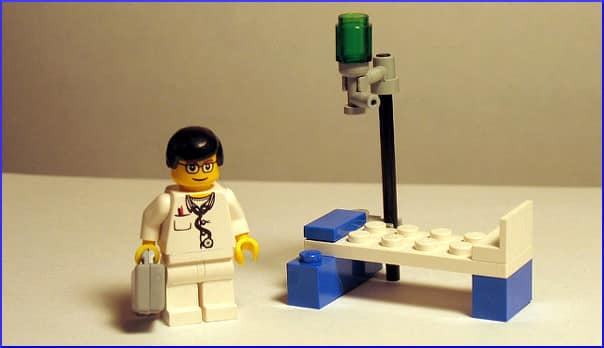
The term “primary care provider” is a wide umbrella that covers doctors who specialize in family practice, general practice or internal medicine; pediatricians; physician’s assistants and nurse practitioners. One thing that many primary care providers have in common is that they do not have time to plan out elaborate weight loss strategies with patients, and even if they did, their training has not adequately prepared them.
In fact, even when the office visit is specifically intended to address the weight issue, research done by the Centers for Disease Control and Prevention showed that diet and nutrition are discussed only one-third of the time. Journalist Kimberly Leonard wrote,
In 24 percent of visits they discuss exercise; weight-reduction education, including referrals to other health professionals, occurred in 26 percent of visits. These sets of advice overlapped, meaning that in 60 percent of doctor visits specifically for obesity, patients received no advice at all.
Patients are frustrated by being told they need to lose weight, without receiving any specific guidance or advice about how to proceed. Some doctors prefer not to broach the topic because they themselves are overweight. Some admit to feeling little respect for obese patients, and this bias does not go unnoticed.
Leonard spoke with Dr. Holly Lofton of New York University, who said,
We need to really work on the medical community accepting obesity as a disease and not as a character flaw.
Last year, the American Academy of Pediatrics drew on what had been learned from research to create a policy statement. Among other things, the Academy learned that children don’t want to be told that they need to lose weight, and parents don’t want to be told that their children need to lose weight. They learned that the content in media created for children is more likely than adult entertainment to stigmatize a character’s weight, and that weight-based stereotypes are ingrained by the time children start elementary school.
Small children are not the only people who hold weight-based stereotypes. Nicole Villalpando reported,
A study found that doctors believe that obesity means that a patient will be noncompliant to medical advice, hostile, dishonest or have poor hygiene. They saw obese or overweight patients as lazy, less intelligent and lacking self-control.
One study found that among overweight and obese kids, over 70% had experienced size-based bullying within the previous year. As a result, they become disengaged from the education process, and tend to be socially disengaged as well. In an example of the “vicious cycle” phenomenon, such children are rated by their teachers as less likely to achieve academic success. Likewise, stigmatized children will engage in less exercise, which then contributes to an even higher risk of obesity.
This stigmatization problem is serious. Overweight and obese children and teens are more likely to behave in ways characterized as self-harming, and to engage in emotional eating or binge eating, and to develop eating disorders. Kids who are teased and/or bullied about their weight are more likely to think about or attempt suicide.
Long-term followup (15 years) shows that children who are teased have higher BMIs that their age-mates who did not undergo that kind of verbal abuse. Here is where the research findings take a dark turn. A study of children entering a weight loss program revealed that 37% had been teased by their parents within the previous year.
Your responses and feedback are welcome!
Source: “Fat? Your Doctor Can’t Help,” USNews.com, 04/12/16
Source: “Doctors, be careful what you say to children who are overweight, says new American Academy of Pediatrics policy,” Austin360.com, 11/27/17
Photo credit: Jay Reed on Foter.com/CC BY-SA

 FAQs and Media Requests:
FAQs and Media Requests: 











